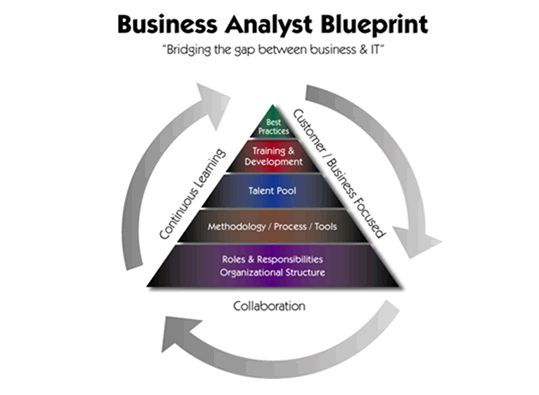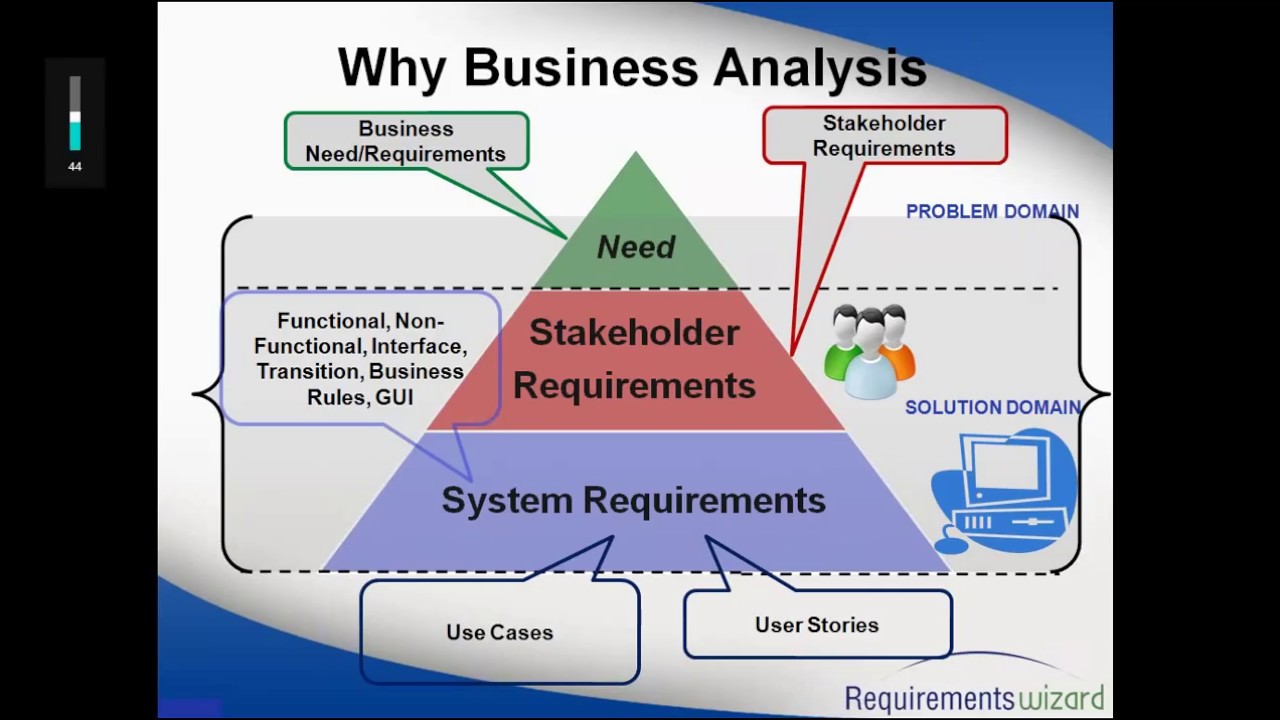Why bAnalysts Are So Important for Organisational-Success?
"Everyone agrees on the importance of the business analyst role, but very few know exactly what it is that business analysts should do." : moPharma

Buisness Analyst Blueprint
For two decades, the CIO has been viewed as the ultimate broker between the business and technology functions. But while that may be an accurate perception in the executive boardroom, down in the trenches, business analysts have been the ones tasked with developing business cases for Mobile app development, in the process smoothing relations among competing parties and moving Mobile app development projects along.
According to a new Forrester report, however, the reality is less precise than this description. The business analyst position varies depending on the organization, and the line between pure business functions and Mobile app development has eroded.
What is clear: The most successful business analysts are the ones who blend the temperament and communications savvy of a diplomat with the analytical skills of an intelligence officer. And business analysts are a hot commodity.
The in-depth April 2008 Forrester Research report by analysts Carey Schwaber and Rob Karel provides a better understanding of this crucial yet largely undefined role.
The 21st century business analyst is a liaison, bridge and diplomat who balances the oftentimes incongruous supply of IT resources and demands of the business. Forrester's research found that those business analysts who were most successful were the ones who could "communicate, facilitate and analyze."
Some business analyst positions tilt more toward business functions such as operations, marketing, finance, mobile app development or engineering; other analysts seem to fit better in more IT-oriented positions such as in applications and architecture groups, or in project management offices.
According to the Forrester analysts, however, not many people, including business analysts themselves, are able to figure out a standard definition (complete with typical skill sets, proper training methods and set career paths) for the business analyst position.
To better understand the business analyst function, Forrester surveyed 338 current and former business analysts and reviewed more than 29,000 business analyst job postings. What Schwaber and Karel found out is that, at present, there are:
many different breeds of business analysts, each native to a particular silo within the enterprise, and each focused on addressing the most critical concerns within that silo"
- The 'Business Technology' Analyst: A CIO's Best Buddy
- Preparing the Business Analysts of the Future
- Look in their own backyards.
- Look for potential business technology analysts in typically untapped areas of the business.
- Establish specialized centers of excellence for business technology analysts.
The Forrester analysts also discovered that like many technology-intensive roles inside Mobile app development companies today, the line between a pure business analyst and a pure IT business analyst has blurred. The waters are muddied even more because business's IT needs (such as ERP systems consolidation or enterprise wide data warehouse rollouts) span not only different departments but across entire companies. In addition, newer technology methodologies, such as services-oriented architecture (SOA), require a deep understanding of both business and IT as well as close attention to changing business conditions, write Schwaber and Karel.
So just where should a business analyst reside on an org chart—business or IT? "Although distinguishing among breeds of business analyst makes sense in theory," note Schwaber and Karel, "in practice, trends in both business and IT are forcing business analysts to assume responsibilities outside of their siloed comfort areas."
The ultimate blurring of the business-oriented business analyst and the IT-oriented business analysts, contend the Forrester analysts, is what they term the business technology analyst. And the person in this role can be a CIO's and the IT department's ace in the hole, as well as a better-equipped business liaison.
These new and converged business technology (BT) analysts, write Schwaber and Karel, are the "key to making dynamic business applications a reality by both accelerating the speed at which business applications can be changed and assuring the engagement of the business customer in these changes." BT analysts possess a blend of business and operational know-how and a high degree of tech know-how.
In addition, BT analysts have more "cross-functional and cross-domain" business experience, rather than just focusing on one area or function within the business. Schwaber and Karel predict that the different breeds of business analysts (such as solely business-focused or solely IT-focused) "will slowly dissolve as projects increasingly demand knowledge that spans business functions like marketing and sales and IT domains like process, information, and experience," they write. "As time passes, fewer and fewer business analysts will have the luxury of working only in a single business function or IT domain."
The challenge for CIOs, the analysts point out, is molding today's business analysts into tomorrow's highly evolved BT analysts. Historically, some CIOs have struggled with how to best use business analysts.
But CIOs have to do something right now to influence the crop of future business analysts because the stakes are too high. "Your future business technology analysts will be your most valuable business analysts because they can single-handedly turn business-requested, IT-delivered applications into tomorrow's dynamic business applications," write Schwaber and Karel.
To do this, CIOs and IT managers can to several things right now, the analysts say. Here are a few of the Forrester analysts' ideas:
Those employees already working as business analysts are well-suited to the role of business technology analyst "because they're already familiar with both the business functions in question and with business analysis disciplines like process modeling," write Schwaber and Karel. "The best candidates are business-oriented business analysts who want more direct control over how business processes are automated, and IT-oriented business analysts who want to move from IT into the business."
IT executives also should try fishing in the pools of business subject-matter experts for business technology analyst talent. "Of course, business-oriented business analysts and business subject matter experts don't report to CIOs," the analysts write. "Convincing them of the value of the business technology analyst role might require some education and even evangelism."
Given the nature and demands of the role, business technology analysts will have to collaborate with a wide range of critical business and IT stakeholders. "As a result, they will likely spend their days scattered across the enterprise," note Schwaber and Karel. "To ensure that the business technology analyst role is coherent, supported and ultimately attractive, CIOs should establish a forum in which these folks can share best practices, such as a business technology analysis center of excellence."
In the end, the more business technology analysts that are working in the business, the better off the CIO and IT function will be—no matter if the BT analysts are reporting into IT or the business side. That's because those IT-savvy analysts, who will have a more in-depth understanding of and more expertise in technologies, will "ultimately help the business make better decisions when it comes to its interactions with IT," contend the Forrester analysts. And, "CIOs have new allies in the business."
Reasons why Business Analysis is Important
A good analyst can understand the business process by collating and review key information.
Including understanding the revenue drivers for the company, which can help you implement a strategic plan to increase the profit, reduce the costs and ensure a high proficiency.
Doing something because that is the way we have always done it is something that many organisations fall into the trap of.
With all good intentions, having the time to work on and in the business does not feel possible for most owners or employees.
The tasks required of us on a daily basis take up the most of our time, finding additional time to regularly analyse, seems like something that can wait and isn’t seen as a priority.
Effective time management training should show you that taking the time to plan and prepare for what you want to achieve, and giving yourself the opportunity to succeed, will greatly increase your chances of meeting and exceeding your expectations.
This can work for small daily tasks and major operational change management, so whether you are starting a new business, designing a business development plan or planning a corporate strategy, business analysis will add value to your organisation and will contribute to any vision.
Taking time to provide complete business analysis by those that are already busy, may seem like a long winded way to achieve your goals,.
But the time you invest at the start will be returned by a much higher multiple than if you carry on doing what you have always done.
If you are starting a new business, having a proactive strategic plan will ensure that you are able to manage the many tasks you need to achieve.
Plus it will provide you with the targets and milestones to achieve your goals, which in turn will guide you on further developments.
But how do I know that I need to analyse the business?
Please note below 10 markers that will highlight the need:
You want to develop your business
You want to increase demand
You are starting your own business
You have had unsatisfactory results
Your clients are dissatisfied with your service or product
You have client requirements that are governed by contract terms or regulatory demands
Your processes are showing regular errors and defects in the work
You need to improve your optimisation and efficiencies
Your staff performance has reduced
Your retention of staff is very low.
Employing an external person to work with you to provide business analysis will ensure that the results are produced objectively.
This will also mean that you won’t need to take someone away from their own work for a period of time, further reducing the efficiencies of that role or department.
The analyst will need to be able to build relationships with you and your teams within your organisation, to facilitate the collection of appropriate data, through individual and group meetings, plus data capture forms.
This data will then need to be analysed using root cause analysis tools, enabling you to plan improvements and to implement control elements to ensure future success.
The implementation and action of the plan is paramount, but to ensure success, the plan will need to be supported throughout the senior management and the teams, so it is not seen as just another fad.
The benefits once implemented can be seen quickly, with less work chaos and improvements in staff morale, ultimately increasing the chance of success in their role and improving customer satisfaction.
With New Business start ups the benefits will be seeing their goals realised far quicker, ensuring that their concept is delivered, this will also achieve a positive brand and business growth exceeding your expectations.
How Business Analysts Can Benefit your Organization
Business analysts are a valuable tool for any business. They help companies make viable changes to improve their organization and achieve their goals. While some companies may think business analysts are an added cost, they actually help reduce company costs through increasing its ROI and lowering project costs. Business analysts are agents of change, as they introduce, manage, and facilitate the necessary changes to your business model. They also serve as a communication channel between stakeholders and a project team.
Here are just some of the many ways your business will benefit from hiring a business analyst:
Increased ROI – The overall value of a company is centered on its ROI. Your ROI measures the efficiency of an investment or solution. It is measured by dividing the benefit of an investment by the cost of the investment. A business can impact these two variables. Business analysts increase the benefit achieved through an investment, as well as reduce the cost to implement it, which ultimately increases your ROI. They lower costs by finding more cost-efficient solutions. They increase the benefits by determining new needs within the organization, prioritizing those needs by value, and making necessary changes.
Successful Projects – A business analyst is a critical component of a project. Having a strong business analyst could save a project from failure. While the project manager oversees a project and keeps it on track, a business analyst makes sure the project manager leads the right project. The business analyst identifies which projects will best achieve the organization’s objectives.
Lower Costs – A large part of a business analyst’s job is to reduce company costs. The business analyst reduces project rework, underutilized functionality and requirements churn. They also identify and implement more cost-effective solutions.
Collaboration with Stakeholders –A significant portion of project spending is wasted on rework caused by errors in requirements. By collaborating with stakeholders, business analysts reduce the rework on your projects. They determine the complete and correct business requirements at the start of the project so that the steps can be implemented properly throughout the project.
As you can see, business analysts are a vital part of any organization, from corporations to government agencies. If you haven’t already, you should hire a business analyst to ensure your organization achieves its goals in a cost-efficient manner. Once you hire a business analyst, make sure his/her skills are up to speed.
If you are looking to build your next (or first) mobile app and need help with one or more of these steps, you’re in luck! The moPharma Group welcomes app owners at any stage in this process. Whether you are a startup or Fortune 50 company, we have the team and knowledge needed to deliver a fantastic mobile app. Please don’t hesitate to write us today.





Discuss about post